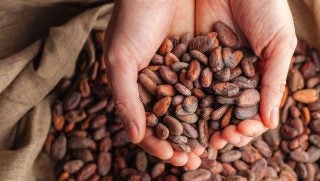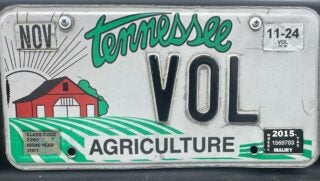In the mid 1970s, my grandparents, Vancy and Jacqueline Bulluck, purchased 44 acres of property in Merced, California, two hours from their home in the Bay Area.
They and their siblings had always talked about owning land. Originally, they wanted to build a cabin to spend weekends and vacations camping and fishing with family. Purchasing land was cheaper than purchasing a cabin. They put in an offer for a farm in Atwater, California, but the sellers refused to sell to my grandparents. My grandfather would later recount that the way they looked at them made them think it was because they were Black. They found another property, an old dairy farm in Merced. However, they were denied the loan because the didn’t have farming experience.
With the help of the owner, they were able to acquire the property. Then they had another idea for it. For my grandfather, it was a way of supporting his family had anything happened to them in life.
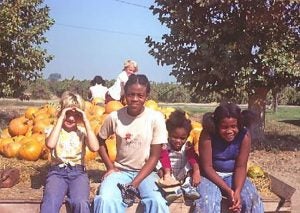
They started with growing row crops like black eyed peas, watermelon, sweet corn and pumpkins. My mom, Maura, and her two sisters helped to grow these crops and sell them from their garage in Richmond, California. My Aunt Bernice remembers being referred to as “the watermelon girl” during middle and high school when people recognized her. My Aunt Charolette said she didn’t want to do a presentation to her class about their farm because she was scared her classmates would tease her.
She instead told the teacher that she didn’t finish the presentation.
“I felt more unique than weird. Your grandparents were innovators and were always steps ahead of trends,” Bernice told me.
My grandparents were unique, as at the time they purchased the land, the number of Black-owned or -operated farms was rapidly decreasing in the United States. Black folks worked the land in California’s Central Valley for generations, but very few families owned land. This was a source of pride for my family. A couple of years later, they planted their first almond trees.
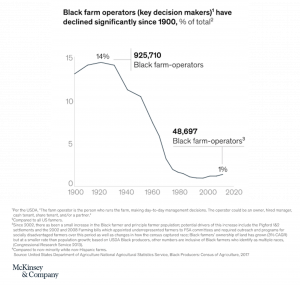
By 1978, 10 acres of their land was in almond trees. My mom still a toddler at the time, along with my two aunts, took a few days from school to help plant the trees by hand. A few years later, they added an additional 20+ acres into almond production.
My grandfather did not grow up in agriculture. He grew up in North Carolina, attended Howard University for a year, then joined the Navy band and traveled the world. He was discharged at Treasure Island in the Bay Area where he met my grandmother, who was a nurse. Her family migrated from Seminole, Oklahoma, and worked on farms in the Central Valley. He would spend most of his professional life as a social worker.
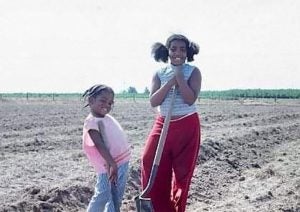
Charolette recounts hearing my grandmother say, “Your Daddy has got me out here working in these fields … this is why I went to school to become a nurse so I wouldn’t have to work in these fields again!”
Growing up, my siblings and I marveled at my mom’s childhood. Growing up in the South in the suburbs was so different from my mom’s childhood splitting time between the Bay Area, a large metropolitan area, and Merced, farm country. But to my mom and her sisters, that was just life. They would wake up early on Saturday, drive two hours to the farm, work on farm for the weekend, and drive back to Richmond on Sunday nights to be in school Monday morning.

In the 40 years my grandparents owned the farm, they would join a co-operative that would help them supply to companies like Blue Diamond Almonds.
On the side, my mom and her siblings would help sell almonds at farmers markets in the Bay Area. Some of their best memories were when they’d spend Christmas and Independence Day on the farm with family and friends. They would continue to travel back and forth between Merced and Richmond until they retired. As kids, my family would fly from Louisiana to California over the summer to visit the farm. One of my personal favorite memories was driving to the edge of the property with my granddad and little sister to pick fresh fruit from real trees.
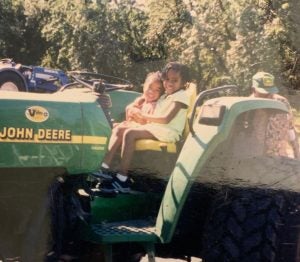
What I admire most about my grandparents was their willingness to seek knowledge and take risks. My grandfather knew a lot about a lot of different things. Most of what my grandfather learned about agriculture was self taught. He would go to libraries and read books on agricultural production after work. He asked neighbors and gained trust from the farm community around them. They worked hard, smart and collaboratively.
Working together with other small farmers was essential to his farm success.
In 2012, my grandfather sold the almond farm. In 2014, I decided to pursue a career in agriculture.
Irene Lewis is a recent Master’s student in the John Glenn College of Public Affairs at The Ohio State University with a major in public administration with a focus on public policy and management. She is a south Louisiana native and food justice and access advocate.

